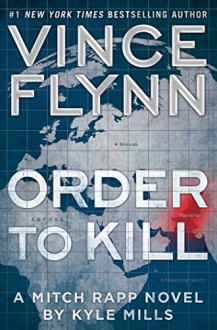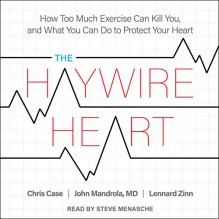

When Cody Blaze meets his father, Russell, for lunch he has no way of knowing it will be the last time he sees him alive. A few days later, Russell is killed. It appears he fell asleep while returning from some out-of-town business and drove off the highway.
After the funeral, Cody is at the family home consoling his mother when he discovers a letter addressed to him in his father’s home office. The letter is written by Russell and discloses that if Cody is reading it, he didn’t die accidentally as it may appear. He’s been murdered.
In the letter, his father entreats Cody to read his unfinished memoir not with the intention of discovering “the motive for my death and the probable identity of my murderer”, but because “there’s so much about my life you never knew about, much of which leads up to this moment of my demise”.
As Cody begins to read the memoir, he discovers he never knew the details about his father’s early life, a life filled with violence and tragedy.
Russell Blaze grew up in the sixties and his memoir is steeped in the hippy counter-culture of the time as well as the eras’ turbulent politics. But it’s his own family members who are the most troubling including his younger brother, Leo, who when still a juvenile murdered their abusive stepfather.
Russell goes on to become a successful journalist, marry a black woman and have a child, while his brother, once out of prison becomes a proponent of white supremacy and lives a marginalized life of hate and violence.
Fate sets the two of them on dramatically different journeys only to converge with deadly consequences.
On the surface, Words Kill is a murder mystery and, in that regard, its plot is somewhat contrived. However, author David Miles Robinson has offered
us much more than a whodunnit. He’s written a book that showcases the big issues of that time in American including the War in Vietnam and others that still resonate today including the prevalence of post-traumatic stress syndrome among veterans, alcohol and drug addiction, and particularly racism. He also digs deep into a dysfunctional family dynamic and reveals how damaging events in early life can manifest into catastrophic results years later.
I particularly enjoyed this book because of Robinson’s realistic take on interracial relationships as well as his authentic depiction of the dark side of the hippy lifestyle. It wasn’t all sunshine peace, and flowers during the Summer of Love.




Mitch is being distracted by the widow of the killer who killed his late wife. Weird.
Claudia is the late wife and Ann is the daughter. They were being hidden in South Africa when words got out that they were being targeted for kidnapping and probably killed. A new player is in town and he is just as good as Mitch. Rare but possible.
Then there is a lot of trap and twists and a bit too risky even for someone as skill as Mitch Rapp. Then it would be just plot device to add lot of tension and action into the story.
The more interesting plot is while the world leaders are acting more like sciopaths, the assassins themselves are more human than those politicians. In a way, it is strange.
There is also humor and some laugh out loud moments. Coleman was hurt in this one and it got a bit emotional.
Going to read the next one and see what happened next.

I don't feel equipped to give this book a star rating. I listened to the audiobook based on a recommendation from an atrial fibrillation Facebook support group that I recently joined. My first identified atrial fibrillation occurred in October of 2016, and I'd been doing marathons and trail 50k's. My afib was detected during a routine physical and confirmed by a cardiologist later that same day. However, when I was about to be given a cardioversion four days later, my heart was back to a normal sinus rhythm. I had no afib at my 2017 physical, but had it again in 2018, and since then it's been more prevalent. My cardiologist does not seem to make much of the endurance-athlete angle. Maybe because since I've started having the afib, I have gained a substantial amount of weight, and I don't think he sees an athlete when he looks at me. Just another fat heart patient who should really lose weight.
In any event, the book includes case studies about endurance athletes' experiences with afib, and their experience of afib tends to be considerably different from mine. They notice fluttering sensations and palpitations in their chests. I do not. I never really know I am in afib, though I've been noticing lately increased fatigue and sometimes shortness of breath during even mild exertion. However, it is difficult for me to know whether that is due to the afib or due to the meds I am on.
Still, this book is worth a read (or listen) for endurance athletes facing arrhythmias.